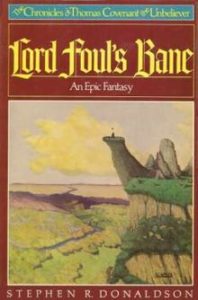An Interview with publisher and author Axel Howerton.
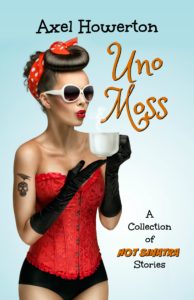 Axel Howerton has a great sense of story – not only for those he writes, but also for those he publishes. What strikes me about Axel is his sincerity – he isn’t involved in the writing community as a marketing or publishing strategy – for him, it’s a passion for a good story told, to support authors, and to provide readers with access to the unique and weird tales they love. I asked Axel about his experiences as a publisher and what he sees in the future for noir and noir crime genres.
Axel Howerton has a great sense of story – not only for those he writes, but also for those he publishes. What strikes me about Axel is his sincerity – he isn’t involved in the writing community as a marketing or publishing strategy – for him, it’s a passion for a good story told, to support authors, and to provide readers with access to the unique and weird tales they love. I asked Axel about his experiences as a publisher and what he sees in the future for noir and noir crime genres.
Axel, Coffin Hop Press serves the genre of horror and noir and embraces it in all the sub genres of science fiction, fantasy, alternate history, detective noir, western and literary. You belong to the Crime Writers of Canada and have had several stories published. What did you see or not see happening in the market place that spurred you to start Coffin Hop Press?
When I came back to writing fiction (after a decade of “entertainment journalism” doing reviews, interviews and articles on film and DVD), I started in horror. My first few publications were in horror publications, and I worked briefly as an associate editor for a quarterly called Dark Moon Digest. I found myself in a new community of horror and dark fantasy writers, and found that there were very few promotional avenues for us at the time. I started a blog hop event called Coffin Hop. Back then, all of the blog hops and online events were for romance writers.
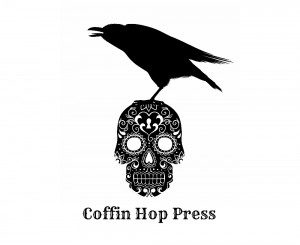 By the third year of the event, it had exploded beyond expectations, and many of those involved wanted to put together a book. So, we chose a charity – LitWorld.org – and put together what became the first Coffin Hop Press book, Death by Drive-In. Once I had created that imprint, and had the systems in place, I used it to self-publish a few things, but something about that felt disingenuous, so I sought out a new anthology project. The first idea was for weird westerns, borne of my own love for weird pulp fiction, and the number of writer friends I have who have similar interests. As I became more involved with Crime Writers of Canada, and especially my local writing community in Alberta, I once again felt the need to build something to showcase the underexposed people I had been working with. That led to AB Negative, a collection of Alberta-based crime stories by Alberta-based crime writers. My new goal is to turn Coffin Hop Press into a solid business, to continue making great anthologies, but also branch out and help the world discover great new writers and unusual genres.
By the third year of the event, it had exploded beyond expectations, and many of those involved wanted to put together a book. So, we chose a charity – LitWorld.org – and put together what became the first Coffin Hop Press book, Death by Drive-In. Once I had created that imprint, and had the systems in place, I used it to self-publish a few things, but something about that felt disingenuous, so I sought out a new anthology project. The first idea was for weird westerns, borne of my own love for weird pulp fiction, and the number of writer friends I have who have similar interests. As I became more involved with Crime Writers of Canada, and especially my local writing community in Alberta, I once again felt the need to build something to showcase the underexposed people I had been working with. That led to AB Negative, a collection of Alberta-based crime stories by Alberta-based crime writers. My new goal is to turn Coffin Hop Press into a solid business, to continue making great anthologies, but also branch out and help the world discover great new writers and unusual genres.
Coffin Hop Press has done a lot of interesting things to promote itself, its books and anthologies but also to promote the genre of horror and crime. I sense you’re having too much fun with it all! You have Noir at the Bar events, you participate in Canada Crime Writer and con events, you’ve sponsored several fun and twisted crime anthologies and now you’re launching Noirvellas.
I’ve long been known (in my own little publishing circles, anyways) as the genre guy, and particularly as the “noir” guy. My tastes have always run to the weird and wonderful – 40’s gangsters, 50’s sci-fi, 60’s sleaze, 70’s crime thrillers – and that’s what I want to publish. With novellas being more marketable due to the proliferation of digital readers, and “noir” becoming something of a catchphrase for dark crime thrillers, it seemed like a no-brainer to put the two together. I think the dark subject matter and shorter format go together like chocolate and peanut butter.
 Noir at the Bar was another way to foster crime writing in my own community. It’s something that started a while ago in St. Louis and spread across North America. I’m proud to say ours was one of the very first in Canada, but more than anything, it’s a way to get people out to hear local crime writers and talk about that kind of fiction.
Noir at the Bar was another way to foster crime writing in my own community. It’s something that started a while ago in St. Louis and spread across North America. I’m proud to say ours was one of the very first in Canada, but more than anything, it’s a way to get people out to hear local crime writers and talk about that kind of fiction.
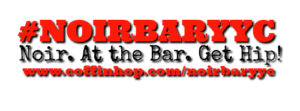 I’m also working with the Chiaroscuro Reading series, which is a national series sponsored by ChiZine Publications that focuses on the darker side of sci-fi and fantasy, as well as horror. All puddles that I still have my toes dipped in. My latest novel, Furr, and the upcoming Wolf & Devil series are a mix of crime and dark urban fantasy.
I’m also working with the Chiaroscuro Reading series, which is a national series sponsored by ChiZine Publications that focuses on the darker side of sci-fi and fantasy, as well as horror. All puddles that I still have my toes dipped in. My latest novel, Furr, and the upcoming Wolf & Devil series are a mix of crime and dark urban fantasy.
For a few years, you held the Coffin Hop which was a week of blog hops and tours held in October. What were your goals with that event? You eventually stopped running it. What were your take-aways from the event and would you recommend it as a marketing strategy for other niche presses?
At the time, an extended multi-author event was a novel approach for horror. We tried very hard to make it something special. We made it a week long, with required cross-pollination between authors. We added special events like poetry slams and art shows, and everyone was required to do giveaways. The problem was, the more popular it became, the more diluted it became, until it was just a flood of people demanding to be involved, yet unwilling to follow those rules, or provide those benefits to readers. The original participants began to get disheartened by the number of people who swooped in and just threw up a paragraph mentioning the hop, then spent a week blasting their own repetitive advertising, instead of working together to make the week a real event for everyone’s readers. Eventually, I got tired of explaining the rules to boorish spammers, and trying to enforce some semblance of fun and frivolity out of the chaos of hundreds of people trying to out scream each other. It had become something akin to a carnival barker convention on crack. At the same time, I wanted to use the imprint that I had created and owned the website for, etc. etc. to work on new book projects, so I suspended the hop and opened the press.
I do think that a similar type of event could work very well, if contained and managed properly. I blame myself for opening the floodgates and not being ready for the onslaught. It was definitely a wake-up call to see the difference between writers and self-advertisers. There’s a troubling ocean of people out there who are flooding the internet with product. They care much less about the art and value of their writing, about telling stories, than they do about getting attention and flogging their wares for a quick buck.
What is local and normal for some is exotic for others. You’ve made it a point to encourage and promote crime and noir stories set locally in the province of Alberta and in Canada. Why this strategy?
AB Negative was a way for me to try and foster the community that I’m in, my hometown crime writing community. There’s a lot of great talent here that is mostly overlooked. There are a lot more avenues for promoting your work in Toronto or Vancouver but, as I found in my dealings with the Crime Writers of Canada, the rest of the country is very much left out in the cold, if you’ll excuse the pun. I wanted to showcase some of the people whose work I admire, and put out the kind of collection I like to read, something eclectic and diverse, with different voices, different styles, and different sub-genres of crime fiction. Nothing annoys me more than using the label “Crime Fiction” and then only applying it to a narrow definition of cozy mystery stories, or quirky local detective yarns. Crime should encapsulate everything from Jim Thompson psycho-sheriff stories to Agatha Christie locked room mysteries; from James Ellroy’s serial-killer lit to Elmore Leonard’s Detroit hipster pulp; from Poe to Patterson and from Marlowe to Fargo.
Looking into your noir crystal ball, what do you see for the future of noir and the noir crime genre? What would you like to happen next?
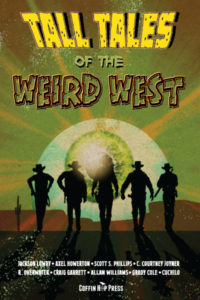 Neo-noir is big business these days, mostly due to the amount of great television out there, and the ease of access to foreign crime shows and books. The Nordic stuff, especially, has had a great influence on our own culture through shows people are watching on Netflix and the like. There’s also a wider appreciation for the great history of incredible British crime programming. People are watching these dark crime shows and movies, and it’s resonating, much as it did in the 30’s and 40’s when the term “noir” was coined to describe nihilistic American crime flicks.
Neo-noir is big business these days, mostly due to the amount of great television out there, and the ease of access to foreign crime shows and books. The Nordic stuff, especially, has had a great influence on our own culture through shows people are watching on Netflix and the like. There’s also a wider appreciation for the great history of incredible British crime programming. People are watching these dark crime shows and movies, and it’s resonating, much as it did in the 30’s and 40’s when the term “noir” was coined to describe nihilistic American crime flicks.
It’s a much slower, and more difficult process to see those trends in book selling (and especially book writing). It takes an incredibly long time for a book to gain traction, let alone cause a profound influence in our modern culture. Television and movies, current events, these are the things that tend to reflect more quickly in our fiction. The great thing about writing books – and I’m not condoning writing for the purpose of getting a TV deal or anything, I think a book should always be written for the sake of the story itself – but, the great thing about writing books is that you become a one-person production studio on your own film, your own epic TV saga. In the end they are all just mediums to carry our stories. When you produce visual media, you need hundreds, sometimes thousands of collaborators with individual interests and opinions. When YOU write a short story, or a novel, or a “noirvella”… YOU control the mood, the lighting, the sets, the actors.
That being said, the culture right now (as always seems to happen in times of social upheaval and political insecurity) seems to be leaning towards science fiction again. There’s already a number of great films and tv shows coming out, and the revival of old favourites like Blade Runner, Aliens, and Star Wars (albeit with a darker edge), seem to point to a coming resurgence of science fiction in our popular literature. It’s already been happening with runaway hit novels like Ready Player One and The Martian. I think there’s a lot more to come.
 That’s partly why we have revived the Sci-Fi Noir anthology we had shelved last year. Keep an eye out for Black Hole Son in 2019. Before that we have an anthology of weird holiday tales, Weird Wonderland, coming this November and featuring writers like Jessica McHugh, Will Viharo, David James Keaton and the amazing Sarah L. Johnson. We have an anthology of “Ladies of Canadian Crime” called The Dame Was Trouble coming out in April next year to celebrate the “Year of Publishing Women”, and a second volume of weird western tales, Taller Tales of the Weirder West, next summer.
That’s partly why we have revived the Sci-Fi Noir anthology we had shelved last year. Keep an eye out for Black Hole Son in 2019. Before that we have an anthology of weird holiday tales, Weird Wonderland, coming this November and featuring writers like Jessica McHugh, Will Viharo, David James Keaton and the amazing Sarah L. Johnson. We have an anthology of “Ladies of Canadian Crime” called The Dame Was Trouble coming out in April next year to celebrate the “Year of Publishing Women”, and a second volume of weird western tales, Taller Tales of the Weirder West, next summer.
Right now, Coffin Hop Press has a sort-of dual presence as a publisher of “weird tales”, EC Comics-type stuff, and crime fiction – usually dark, almost always tempered with black comedy. We have plans to spread out more – take the weird side towards more horror, sci-fi and urban fantasy; expand from crime into more literary -tinged mystery and gothic fiction.
Any advice for those thinking about starting their own small press to fill void in a niche market?
Diversify. Serving a niche is fine, serving several works better. More than anything, just like writing what you love, publish what you love. While publishing is a business, if you’re smaller potatoes – julienne, even – why waste time on material you don’t believe in? Why waste passion on books you wouldn’t want to read. Here’s the tip. You’re going to have to read these books. Over and over and over. They might as well be the kind you really enjoy. Seek out authors that you find exciting, not just profitable names. If you help those emerging writers who are doing really vibrant and exceptional work, the world will eventually notice, and you may be the one who gave them that break. Surround yourself with authors and editors that you respect and really connect with, and treat them with respect in turn. Word gets around. If you do good work, and you treat people professionally, you can build a business. If you’re in it to make fast deals and crap out product en mass? You may make a little money to start, but you’ll be dead in the water by your second or third project, and nobody is going to want to work with you. Of course, if you’re treating it like a scam, you probably haven’t read this far because I’m not talking about revenue streams and Facebook ads. Be good. Be true. Tell stories. That’s what it should always be about.
 Axel Howerton is a former entertainment journalist, and the author of the Arthur Ellis Award nominated detective caper “Hot Sinatra”, the modern gothic fairytale “Furr”, and the forthcoming “Wolf & Devil” urban fantasy series. His work – including short stories, columns, poetry and essays – have appeared the world over, in no fewer than five languages. Axel is a former Prairies director of the Crime Writers of Canada, and a member of the Canadian Science Fiction and Fantasy Association, the Calgary Crime Writers, and the Kintsugi Poets. He is also the editor of the books “Death by Drive-In”, “AB Negative”, and “Tall Tales of the Weird West”, and is the Calgary chair of the Chiaroscuro national reading series, and the organizer behind one of Canada’s first recurring “Noir At The Bar” events, #NoirBarYYC.
Axel Howerton is a former entertainment journalist, and the author of the Arthur Ellis Award nominated detective caper “Hot Sinatra”, the modern gothic fairytale “Furr”, and the forthcoming “Wolf & Devil” urban fantasy series. His work – including short stories, columns, poetry and essays – have appeared the world over, in no fewer than five languages. Axel is a former Prairies director of the Crime Writers of Canada, and a member of the Canadian Science Fiction and Fantasy Association, the Calgary Crime Writers, and the Kintsugi Poets. He is also the editor of the books “Death by Drive-In”, “AB Negative”, and “Tall Tales of the Weird West”, and is the Calgary chair of the Chiaroscuro national reading series, and the organizer behind one of Canada’s first recurring “Noir At The Bar” events, #NoirBarYYC.
 Tyche is an intriguing name with an unusual by-line Fortune Favours the Bold. What is the story behind the name?
Tyche is an intriguing name with an unusual by-line Fortune Favours the Bold. What is the story behind the name?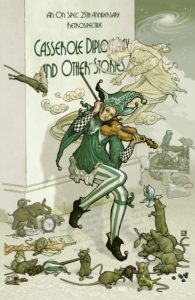
 I really enjoy the anthologies–I read a lot of short fiction. After not publishing one for a few years, it felt like the right time to publish another one, especially since Rhonda Parrish is the editor and her proposed theme was one I couldn’t resist.
I really enjoy the anthologies–I read a lot of short fiction. After not publishing one for a few years, it felt like the right time to publish another one, especially since Rhonda Parrish is the editor and her proposed theme was one I couldn’t resist.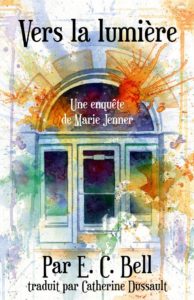 We started producing the audiobooks and translations because we wanted to try something new. Because we’re small, we’ve had to find cost effective ways to accomplish this. For the audiobooks, we worked with narrators who were looking to bulk up their portfolios, so they didn’t charge us an arm and a leg.
We started producing the audiobooks and translations because we wanted to try something new. Because we’re small, we’ve had to find cost effective ways to accomplish this. For the audiobooks, we worked with narrators who were looking to bulk up their portfolios, so they didn’t charge us an arm and a leg.
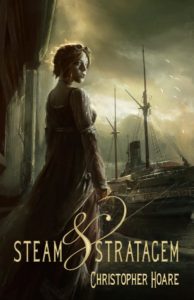
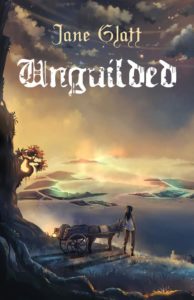
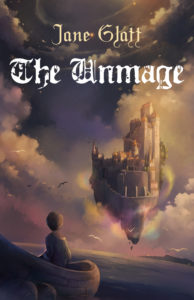
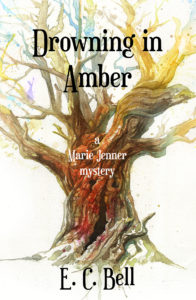
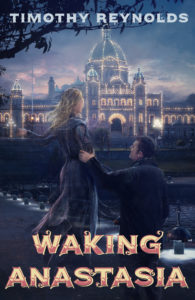
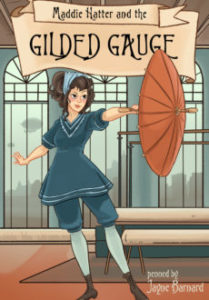
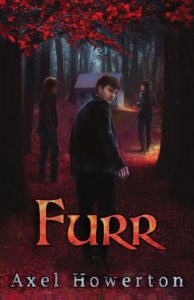
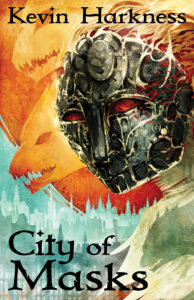







 As my fellow Fictorians are showing you so far this month, there are many ways to set yourself apart as a writer. In my mind, the most memorable way to set yourself apart is voice, to the surprise of no one. In past posts, I’ve highlighted how you might
As my fellow Fictorians are showing you so far this month, there are many ways to set yourself apart as a writer. In my mind, the most memorable way to set yourself apart is voice, to the surprise of no one. In past posts, I’ve highlighted how you might 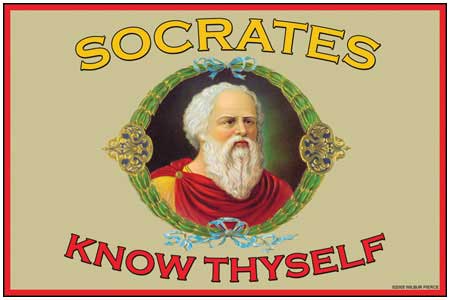
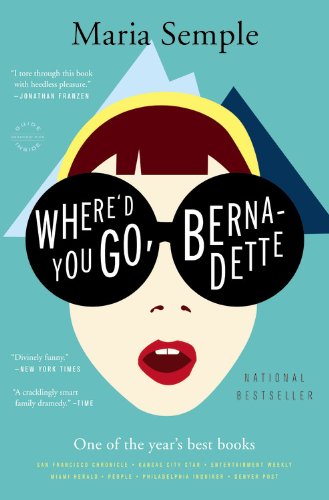
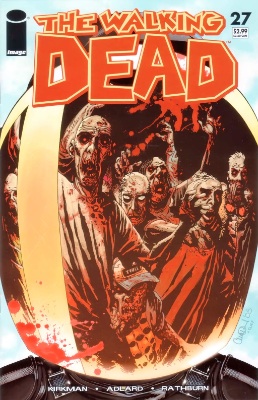 Robert Kirkman
Robert Kirkman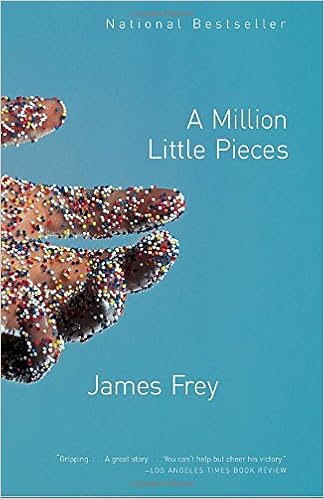 I would be remiss if I didn’t point out an author I’ve mentioned many times in my Fictorians posts who is, in my mind, the king of grammatical voicing:
I would be remiss if I didn’t point out an author I’ve mentioned many times in my Fictorians posts who is, in my mind, the king of grammatical voicing: 
